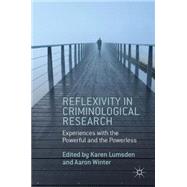Reflexivity, and the need to be reflexive, permeates all criminological research and the chapters in this collection cover various aspects of this, including gaining access to the field, building relationships with the researched, the impact of the researcher's identity on the research (including gender, class and race), ethics, risk, bias and partisanship, policy implications, and how to disseminate findings and 'give voice' to the researched. A range of research settings are drawn from including those typically involving the powerful, such as state institutions, courts and prisons, to those typically conceived of as powerless, such as deviant and dangerous individuals as well as subcultures including boy racers and hooligans. Research participants defined as vulnerable, for example victims of crime, are also considered.
This comprehensive collection explores a variety of methods including interviews, participant observation, virtual ethnography and feminist research. Acknowledging the fluid nature of power relations and dynamics, this volume will be a valuable resource to scholars of criminology and sociology.









